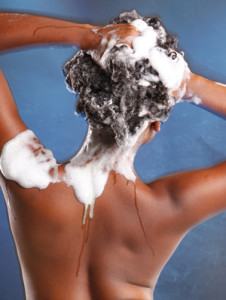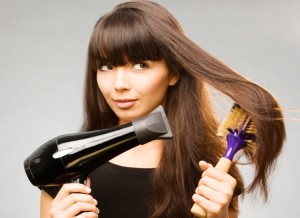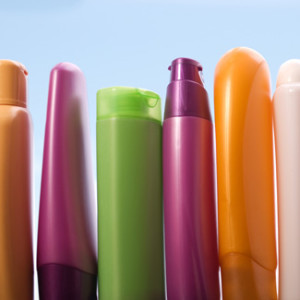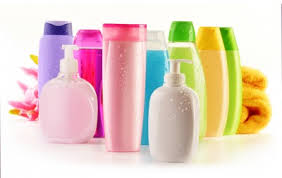
Start Your Own Empire
Manufacturing Cosmetics, Makeup, HairCare,
Sanitizers & Detergents
使洗发水,护发和头发护理...创办自己的企业
每年,世界各地的洗发水、护发素、造型辅助工具、精加工产品和各类护发产品的销售额高达惊人的650亿美元。
点击这里发现商业秘密和行业配方 - 学习如何制作洗发水和护发产品,并加入这个独家计划。
全球销售 + 护发产品
| Hair Care Categories | Annual Sales |
|---|---|
| Shampoos | $22 billion |
| Conditioners | $13 billion |
| Colorants | $12 billion |
| Styling Agents | $9 billion |
| Salon Hair Care | $5 billion |
| 2-in-1 products | $3 billion |
| Perms & Relaxants | $1 billion |
| Total | $65 billion |
毫不奇怪,如果你 做头发洗发水 和 护 发 素,这是迄今为止头发护理类别中最大的赚钱者。毕竟,谁不洗头发——从婴儿到儿童、男女,年轻人和老年人——几乎每天都在洗头发呢?更何况,美发沙龙使用的洗发水量。
制作护发产品拥有高利润率 - 大多数产品在 60-80% 水(通常为 80%)之间,其余成分极其便宜。事实上,当你开始为自己做洗发水,你会想知道为什么你支付15美元一瓶洗发水,可能成本低于1美元制造。
有无数的利基市场,如果你想开始一个业务,最初只创建洗发水,然后扩大您的护发产品的范围,包括护发素,造型剂,精加工产品等。
如果您经营自己的美发沙龙,或者您有兴趣开始高利润业务,请阅读本文 私人标签护发.
 您可以 制作洗发水 婴儿 • 这些可以是无香味或温和的香味,含有少量天然油和温和的表面活性剂,特别适合婴儿敏感的头皮。从那里,你可以分支,以生产额外的婴儿护理产品 - 婴儿浴,婴儿化妆水。
您可以 制作洗发水 婴儿 • 这些可以是无香味或温和的香味,含有少量天然油和温和的表面活性剂,特别适合婴儿敏感的头皮。从那里,你可以分支,以生产额外的婴儿护理产品 - 婴儿浴,婴儿化妆水。
您可以 制作洗发水 男性 • 选择男性的香气和包装。然后扩大您的男性美容产品范围,包括剃须泡沫、剃须化妆水、除臭剂以及男士护肤品(如防晒霜和保湿霜)。这是一个蓬勃发展的市场,尤其是男性的抗衰老面部产品。几年前,你找不到很多男性愿意采取这么多的嗅眼凝胶或SPF 15 - 今天,这是一个非常不同(和有利可图的)故事。
您可以 制作洗发水 儿童 • 有趣和丰富多彩的包装和赏心悦目的香气帮助孩子们享受洗头的乐趣。脱发护发素和留用护发素总是长头发的小女孩的赢家。
 你可以使洗发水,护发素和造型产品 民族头发 市场 – 这是一个巨大的增长行业。它很容易生产洗发水和护发剂的民族头发类型,因为它是任何其他,生产成本几乎相同,但你可以收取这些需求产品的溢价。此外,市场是巨大的,基本上尚未开发 - 你只需看看人口的大小与这种类型的头发,知道它是一个令人难以置信的数字。在大多数国家,北非、南非、中东、美国等国家都有大市场。民族护发市场的另一个好处是,许多客户将购买多种产品,以帮助维持他们的头发 - 从温和的清洁洗发水到密集的日常护发素,每周调理护理和化妆,留温护发素,平滑香膏,造型产品,整理产品,如保湿霜和pomade,硅的头发末端...你的名字,有这么多的可能性。
你可以使洗发水,护发素和造型产品 民族头发 市场 – 这是一个巨大的增长行业。它很容易生产洗发水和护发剂的民族头发类型,因为它是任何其他,生产成本几乎相同,但你可以收取这些需求产品的溢价。此外,市场是巨大的,基本上尚未开发 - 你只需看看人口的大小与这种类型的头发,知道它是一个令人难以置信的数字。在大多数国家,北非、南非、中东、美国等国家都有大市场。民族护发市场的另一个好处是,许多客户将购买多种产品,以帮助维持他们的头发 - 从温和的清洁洗发水到密集的日常护发素,每周调理护理和化妆,留温护发素,平滑香膏,造型产品,整理产品,如保湿霜和pomade,硅的头发末端...你的名字,有这么多的可能性。
你甚至可以 为宠物制作洗发水!我赚了一大笔钱,为兽医诊所制作私人标签狗洗发水。
你可以制造洗发水,使护发素作为 自有标签 护发制造商。在这里,您可以建立一个长期的高利润业务。
如果您阅读本文,有关 自有品牌化妆品, 你会明白为什么许多零售商—— 从美发沙龙、水疗和美容院,到超市、药店和百货公司,越来越警惕和厌倦销售主要品牌。 化妆品制造 公司。
这些年来,我的许多最大的客户都来自这样的行业。许多美容院老板都推广了所谓的"Salon独家"护发品牌,给成千上万的客户提供了多年的有价值的口碑推荐,结果发现,一旦他们做了所有艰苦的工作和免费广告,这些品牌就会在折扣店广泛销售。
他们做什么? 他们要求我用自己的标签为他们制造洗发水。或者,我接近他们与一个无与伦比的命题,使洗发水和护发产品与自己的名字和标志在瓶子上。一些美容院可能会继续出售其他品牌,但现在他们的建议集中在自己的私人品牌上——从自己的口袋而不是贪婪的企业集团中收获回报。
创造洗发水和护发产品的范围并不仅仅与美容院一样——我发现许多行业都出现类似的情况。让零售商相信销售自己品牌的价值是极其容易的——大型化妆品制造公司的不道德、不严厉和往往是非法的策略使得它变得容易。
有兴趣开始自己的业务和发现 如何 制作洗发水 就像主要的化妆品制造商一样?AustraLab 提供与主要化妆品制造公司同等的配方,甚至优于 点击这里开始自己的高利润业务 和 制作洗发水、护发素和发型辅助工具。

立即订阅 • 从 AustraLab 接收最新消息和更新
您可能还喜欢...

How To Make Styling Products
Start Your Own EmpireManufacturing Cosmetics, Makeup, HairCare,Sanitizers & Detergents How To Make Hair Styling Products… Start your Own Business Click here to learn the trade

10 Compelling Reasons for Private Label Hair
Start Your Own EmpireManufacturing Cosmetics, Makeup, HairCare,Sanitizers & Detergents Private Label Hair Care … Start Your Own Business Click here to learn the trade secrets

Shampoo Ingredients – How To Make Shampoo
Start Your Own EmpireManufacturing Cosmetics, Makeup, HairCare,Sanitizers & Detergents How to Make Shampoo … Start your Own Business Click here to learn the trade secrets

© 2020 AustraLab澳大利亚化妆品制造、洗浴配方和清洁产品配方

34 回复
Hi Sam, I appreciate this article because it seem to address and answer some of my questions in regards to first starting my cosmetics business by launching and producing my own hair care products’ line. I plan on formulating my own hair care products that promotes thickness, strength, growth, and healthy look for myself and others. I am interested in adding ingredients that will feed and nourish hair with healthy nutrients. I’ve read many of your other articles so far and really enjoy them. Now, I’ve came to a point to where I’m ready to get started in my venture and not wait any longer. My question is, is this door of opportunity for an average Jane like myself can potentially make a fortune by providing excellent products to markets that are ripe? Please feel free to respond at your earliest convinience. Thanks a-billion-dollar-times-more.
Hi Candice,
I developed the AustraLab program especially for the “average” Jane and Joe – though with your entrepreneurial spirit, I’m not sure if you quite fit that category!
You don’t need any special qualifications or previous experience to be able to make your own professional quality makeup, cosmetics, shampoo and hair care products, or detergents. My instructions are easy to follow and the formulations are engineered for ease of manufacturing, efficacy of ingredients and maximum profits. Shampoos and hair care products are an excellent source of stable income – an everyday essential in homes and salons – plus they’re easy to make, easy to customize and high profit. Private label hair care products for salons are a steadily growing industry and there are very few manufacturers taking advantage of this potentially huge market.
Glad you’re enjoying the info – and thanks for your contribution!
I think it is hard to make a shampoo. But I want to learn though. I would make a shampoo with aloe vera extract.
Hi Katrina,
It’s nice to have you here. Making shampoo is actually one of the easiest cosmetic/toiletry products to manufacture – the mixing procedure is not complicated and because most shampoos are about 70% water, the profit margins are high. You can make endless combinations, catering for different hair types – dry, oily scalp, dandruff, etc – by adjusting the formulations, and adding essential oils and other plant additives.
Thanks for your reply. I really appreciate it.
I haven’t got any experience in making a shampoo even with soap. But I am curious and do want to know. That is why I am thinking of it as hard one since I didn’t experience it ever.
Thank you so much.
🙂
Have a nice Day Mr. Sam
___
Katty here
I will like to talk with shampoo designers for black men and women in african wealthy oil nation with population over 170millions
Hi Paul,
Thanks for visiting my blog.
The market for ethnic hair care products is huge – and by manufacturing your own shampoos, conditioners, etc you will be making the maximum possible profits and retain maximum control of quality.
When you own the formulations and control the manufacturing procedure, you have a winning business.
Hi Sam
I am one of the young woman who did Bsc in Chemistry i want to have my own products I need You assistant where do i start to do them what do I need….
Hi Stella,
The AustraLab program comprises everything you need to start your own business manufacturing hair products and cosmetics. There are 100 professional formulations (engineered for ease of manufacturing, efficacy of ingredients and maximum possible profit margins), plus the manufacturing procedures manuals, marketing manuals, 250 graphic designs for labels, plus the trademark license. you can find all the details 这里
Hi Sam,
we want to produce our own range of hair care products. How do we bring our products in the salons. What is the best way, find a distributor or go from salon to salon?
I very much preciate your answer. Thanks.
Hey Rene,
There are many ways to create markets for your own range of hair care products.
In part, it depends on your time, resources and business plan. Engaging an established distributor can enable you to gain access to a much larger customer base much more quickly. If the distributor you choose is well-known in the hair/beauty industry, this may help you grow faster.
Engaging your own sales team also has its advantages – you have more control over how your product is promoted, and closer contact with your customer base.
Manufacturing private label hair care products (labeling the products with the salon’s own name and logo) is also a rapidly growing business. In this sector, I usually find that the demand is far greater than the supply.
Dear Sam, am in Africa. Are the ingredients widely available?
Hi, great to have you here – yes, the ingredients are readily available and there are established shampoo ingredients and cosmetic ingredients suppliers in Africa. All my formulations use raw ingredients by their generic name – not trademark blends which are sometimes difficult and expensive to obtain.
That’s probably incredible and a good idea since you get to have a chance to make an empire and at the same time you get to discover the thing that really works for your own type of hair. It seems that it gives you the total breakout that you need to discover new things for you.
Wow, I had no idea that the hair industry made that much money. Sure, I knew they made a lot, but I didn’t think it would be anywhere near the billions. I had no idea that that £8-10 turns up as $65 billion annually.
That’s an awful lot of money. Maybe I should become the next L’Oreal or Kerastase!
Hi Robin,
Yep – it is a lot of money – and it actually increases steadily every year.
If you’re having doubts about making it big in the cosmetic or shampoo manufacturing industry, take a look at this article 这里 – if it can be done in Kenya, it can be done anywhere in the world.
Good day Sam
I am based in Bloemfontein, South Africa and I am well interested in venturing into the business of cosmetics manufacturing and cleaning detergents production…
Please feel free to reply via my email address as for us to arrange how to go about roping me in into this lucrative business.
I have a lot to learn from this completely new idea and I am so eager to start from the lowest level and grow with it.
Thanks.
Hey Ncedo,
Thanks for taking the time to make contact. I’ve sent you an email – please let me know if you need any further information.
You might also gain inspiration from 本文 about a successful cosmetics company in Kenya – it’s now worth around $1 million, manufacturing just three lotions. If they can do it, anyone can!
Hi Sam,
I want to start a Shampoo product based on a natural plant that has been used by one tribe for many centuries. When I was a child, I used this product regularly. This product will make a normal and greasy air look fantastic. It will wash out air lice in no time. It works. What I want to do is brad, patent and manufacture this product and this is where I need your help and guidance. Please e-mail me the things I need to do to start off!! I am an engineer in the oil & gas industry but now I think I am ready to start my own business.
Mnay thanks,
Tony
Hi Tony,
The procedure for developing a patent for a product can vary between countries – I would advise you initially to contact your local Intellectual Property/Patents Office. They should be able to give you some basic advice and a starting point. From there, it may be necessary to seek the advice of a specialist patents lawyer.
You would then need to seek the services of a professional formulator to develop the product for you, ensuring it is safe and suitable for its intended market.
You might find that the process of developing a patent and formulation can be time-consuming and costly, so you will need to look carefully at the commercial viability of the product.
Patenting the use of a specific natural plant in a product could prove challenging (again, this depends on the laws of your country). One of the reasons that so little research is conducted on natural plant extracts for medicinal purposes, is that these cannot be patented without some specific modification to the chemical structure of the extract.
However, I would not be thwarted if developing a patent is not viable or cost-restrictive – there are many highly successful products on the market, based on a single plant ingredient, which have no patent, and make their owners a small fortune.
Hello Sam,
I am currently in the process of creating my own private label shampoo and am now at the point where I am looking for both shampoo and bottle manufacturers. I have read here that you’re company may aid in this procedure so if possible, may you please list anything you can do to aid in the advancement on my private company?
Thank-you for this great information and you time,
Andrew
As a nurse practitioner, I am tired of working long hours and have been wanting to start a lucrative business. Tried few things but all failed. Loved your idea. Would want to start cosmetics/perfume/household cleaning/laundry products manufacturing. Would want to export to Africa, target afro-carribeans, low-ends and not so-high ends. Please tell me how to start gradual, then venture into exporting and building networks that rock the business world.
Hi Bella,
Thanks for reading my website.
Targeting the African market is an excellent idea – great growth potential.
You can start by making the most popular, everyday consumable items – then branch out into manufacturing more specialised items.
we own a full service hair salon in Florida and we like to have our own product line .
We’ve spoken already with sa couple factorys but we’re not sure how to start.
of course we like to sale our product to the distributors and hair salons as well.
what would you recommend us ?
Thanks
Falco Beauty LLC
Lothar Finger
I AM SO GLAD READING DRM U. UV REALLY MADE MY DAY AS UV ENCOURAGED MORE ON MY VISION OF PRODUCTN OF HAIR PEODUCTS. TANX
Hi Debra, Thanks for stopping by.
Glad to have provided you with some inspiration, wish you great success with your vision.
Hi dear sam,
I wish you doing well and healthy
with respect I want to make a factory of making shampoo, so I really need of your best ideas and assistancy with me that how to make shampoo and which machanry or plant are using in it. If you have good material to help me please send it to my email address I will be really appreciate from your assistancy with me
Thanks
waiting for your response
Hi,
All the information you will require to start your own shampoo and hair products business, is within the AustraLab manuals. Please let me know if you require further details.
need to learn manufacturing of shampoos and relaxers
Hi Dr. Peter,
Welcome to my website. The AustraLab program will provide you with the formulations and manufacturing procedures to get started making your own range of cosmetics.
more information to buy the book
Hi Jean,
All the details of the manuals and formulas are on my website – http://www.australab.com
Please get in touch if you require additional information.
Hi Sam,
I am from Africa but now reside in Australia. My country of origin has 75+million people and the hair and cosmetics market is huge, but 90% of the products are imported into the country.
I read the story of the Kenyan entrepreneur, I was very impressed and encouraged by his humble beginnings. I have been playing around with the idea of starting my own line of shampoos and conditioner and expanding to other products eventually.
How and where do I start? I have limited finances, but I really believe that this venture will be a successful one.
your advice would be very much appreciated.
Beth K.
Hi Beth,
The African cosmetics market is definitely huge and largely untapped. Niche brands with only a few products in the range can be very successful – as is this case for the Kenyan company. Look at what is already selling well in the marketplace, and find ways to improve it – that’s usually a good place to start. Do market research by speaking to salon owners – ask them what they like, what they need, etc. Consider the use of ingredients that are native to the country and use this as a marketing angle. Hope this gives you some inspiration and good luck with your venture.